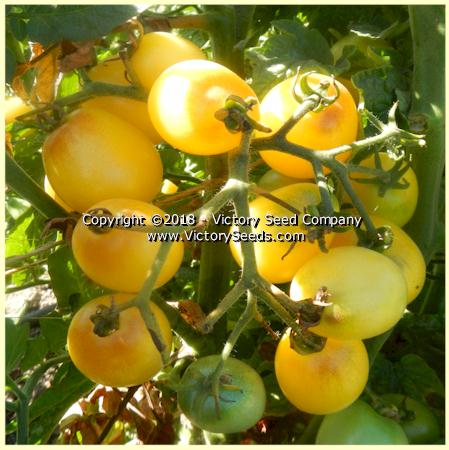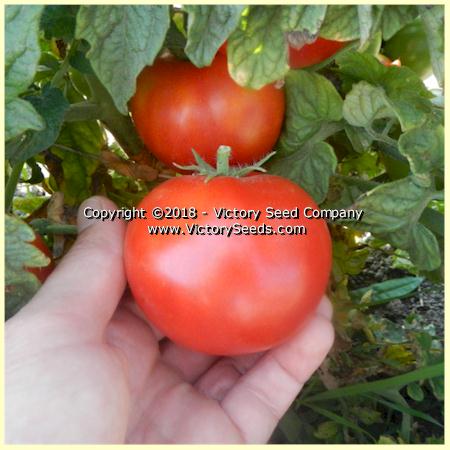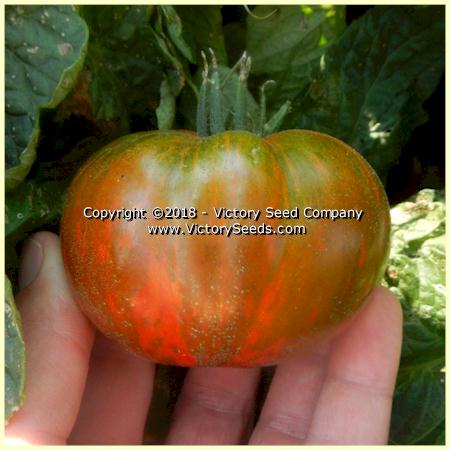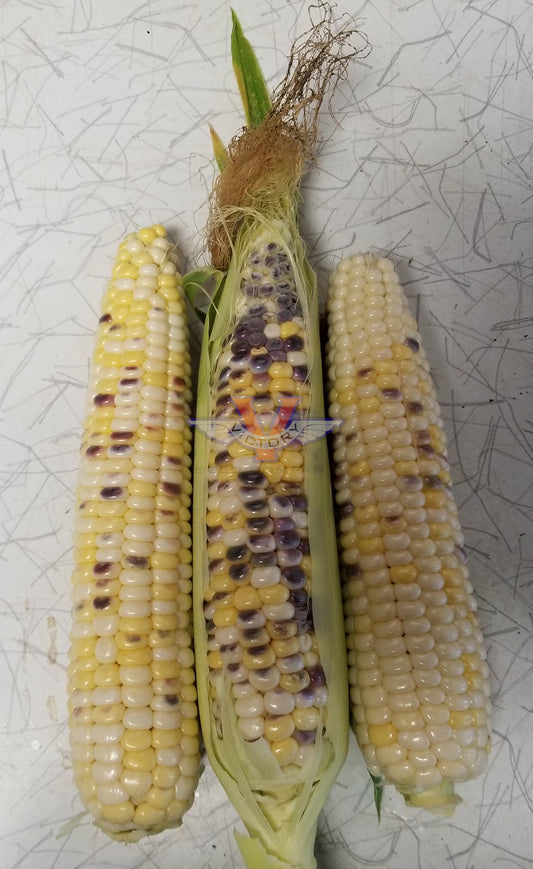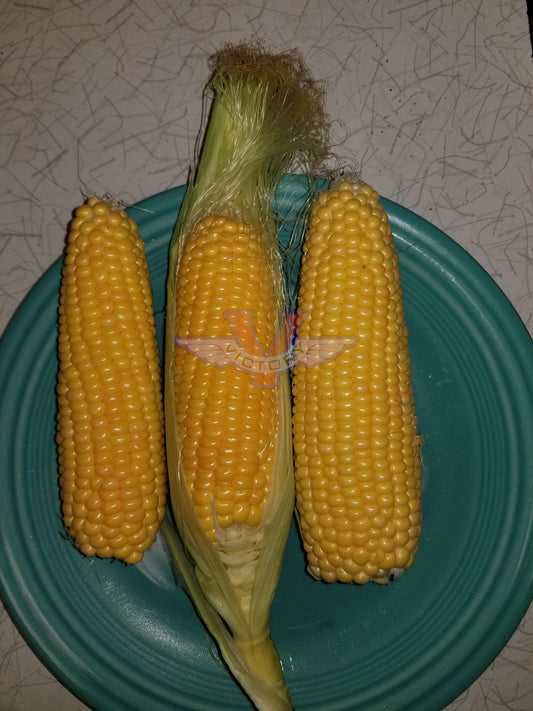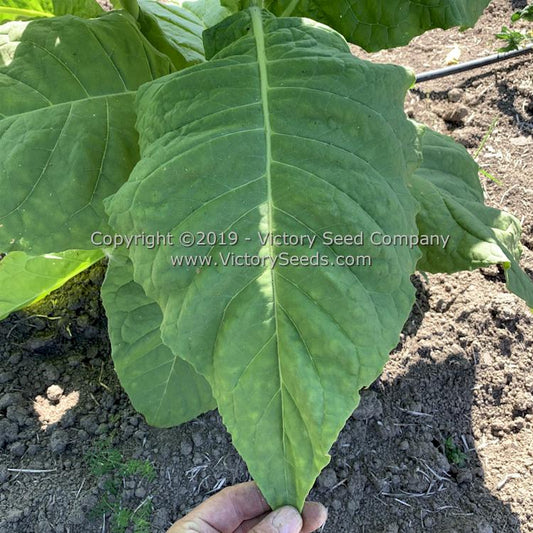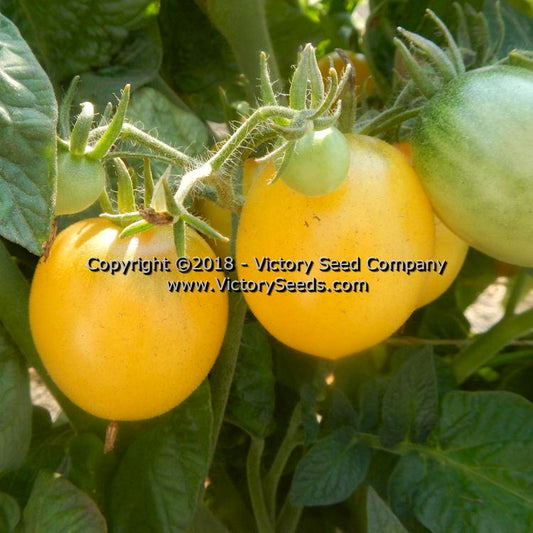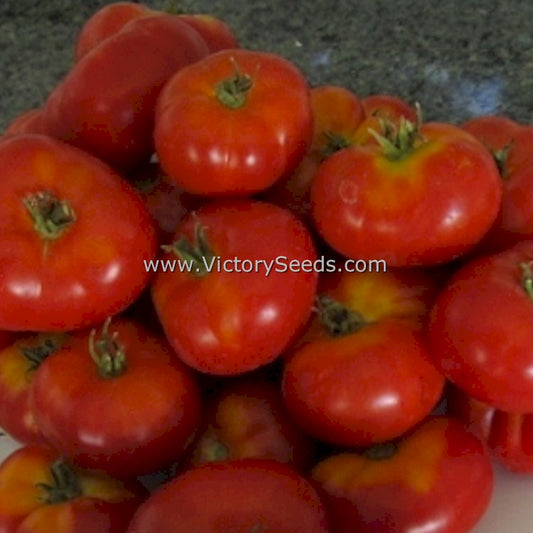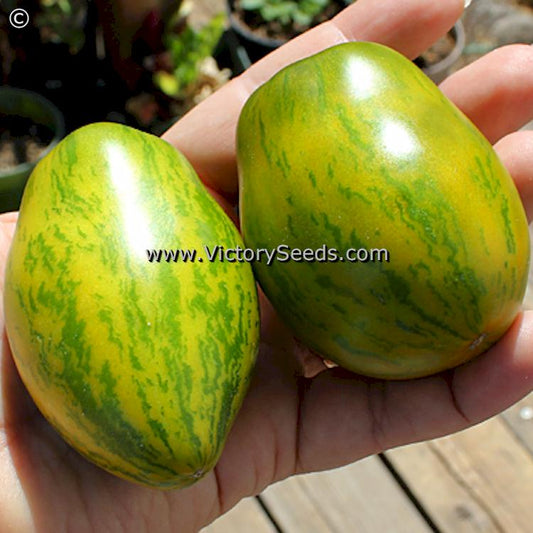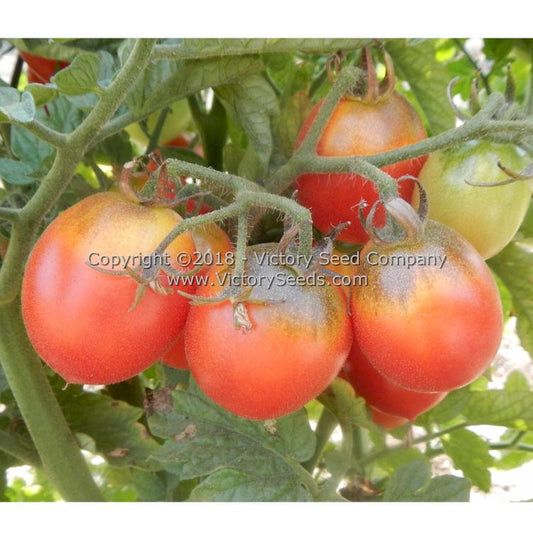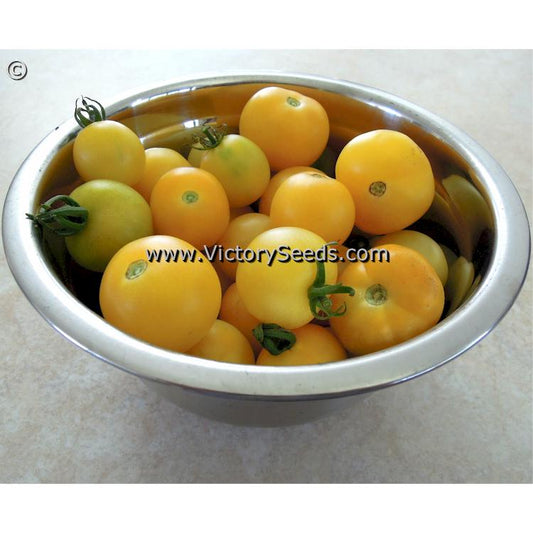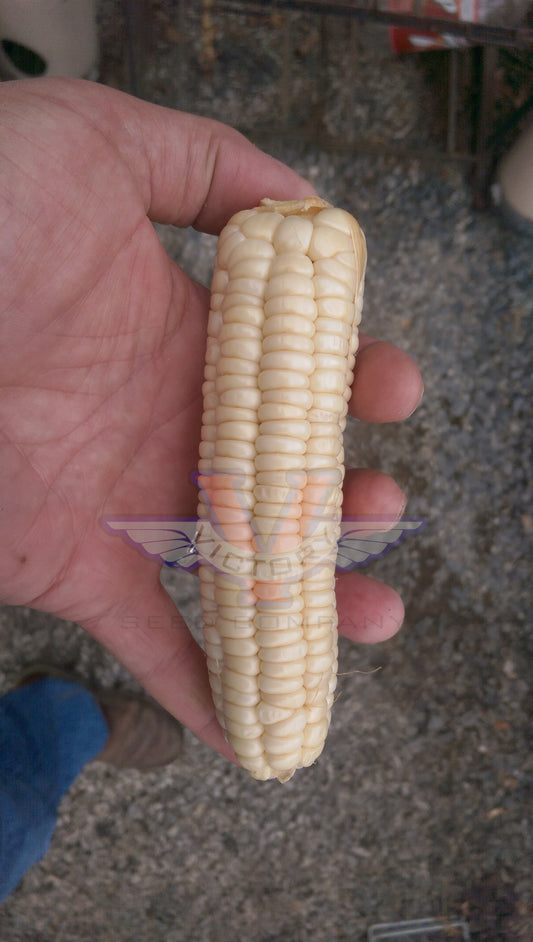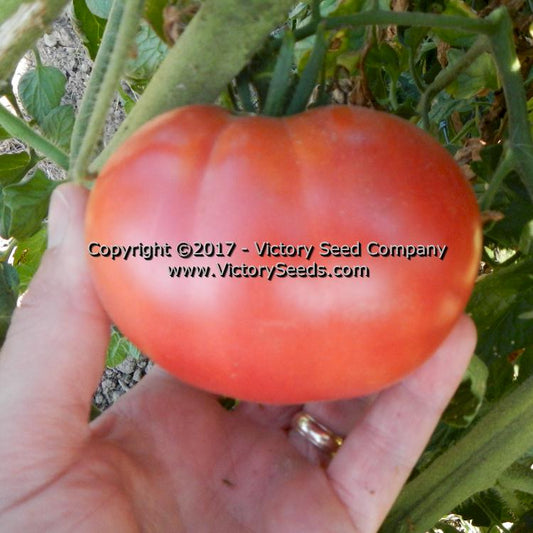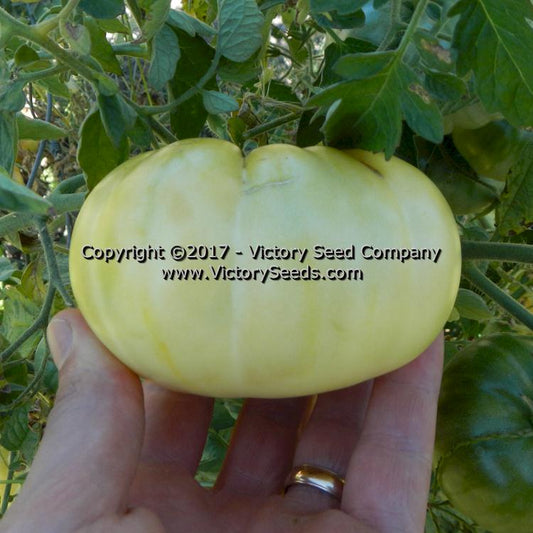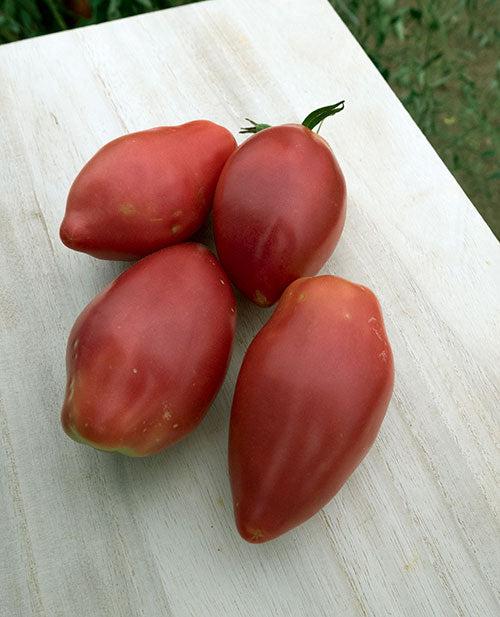-
Dwarf Bendigo Moon Tomato
Regular price $3.95 USDRegular priceUnit price per -
Clare Valley Red Tomato
Regular price $2.95 USDRegular priceUnit price per -
Dwarf Andy's Forty Tomato
Regular price $2.95 USDRegular priceUnit price per -
Pearson Tomato
Regular price $2.95 USDRegular priceUnit price per -
Triple Play Sweet Corn
Regular price From $4.49 USDRegular priceUnit price per -
True Gold Sweet Corn
Regular price From $4.49 USDRegular priceUnit price per -
Moonlight Tobacco
Regular price $3.49 USDRegular priceUnit price per -
Big Gem Tobacco
Regular price $3.49 USDRegular priceUnit price per -
Dwarf Mandurang Moon Tomato
Regular price $2.95 USDRegular priceUnit price per -
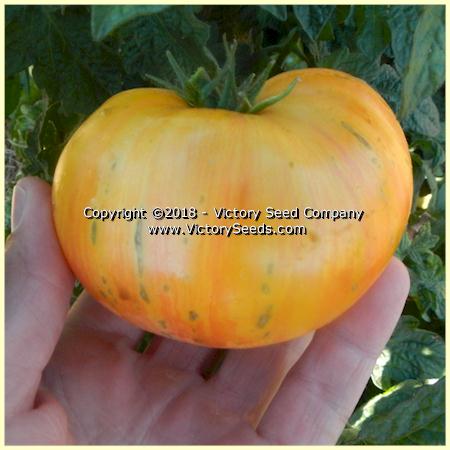
 Sold out
Sold outDwarf Confetti Tomato
Regular price $3.95 USDRegular priceUnit price per -
Dwarf Pink Opal Tomato
Regular price $2.95 USDRegular priceUnit price per -
Dwarf Franklin County Tomato
Regular price $2.95 USDRegular priceUnit price per -
Dwarf Saucy Mary Tomato
Regular price $3.95 USDRegular priceUnit price per -
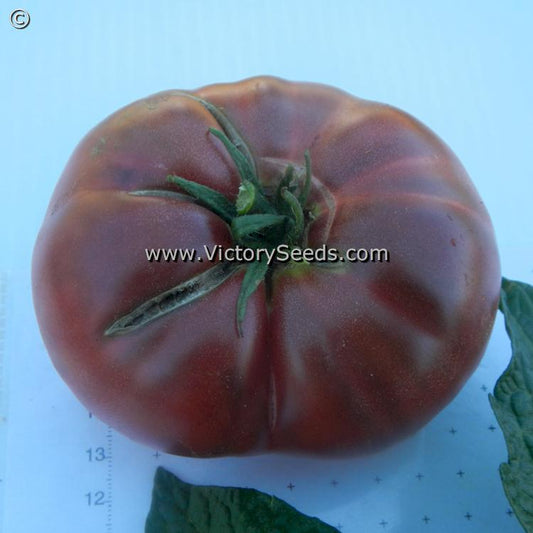
 Sold out
Sold outDwarf Black Angus Tomato
Regular price $3.95 USDRegular priceUnit price per -
Dwarf Bendigo Dawn Tomato
Regular price $2.95 USDRegular priceUnit price per -
Dwarf Barossa Moon Tomato
Regular price $2.95 USDRegular priceUnit price per -
Dwarf Sarah's Red Tomato
Regular price $2.95 USDRegular priceUnit price per -
Will's Early June Sweet Corn
Regular price $4.49 USDRegular priceUnit price per -
Red Zebra Tomato
Regular price $2.95 USDRegular priceUnit price per -
Springston Heirloom Tomato
Regular price $2.95 USDRegular priceUnit price per -
White Tomesol Tomato
Regular price $2.95 USDRegular priceUnit price per -
Sheboygan Tomato
Regular price $2.95 USDRegular priceUnit price per -
Missouri Pink Love Apple Tomato
Regular price $2.95 USDRegular priceUnit price per -
Halladay's Mortgage Lifter Tomato
Regular price $3.95 USDRegular priceUnit price per
USDA Organic Seeds:
USDA Organic Seeds are defined by their adherence to strict standards set by the United States Department of Agriculture (USDA) for organic certification. These standards encompass various aspects of seed production, handling, and labeling to ensure the integrity and organic nature of the seeds. Here are the key defining factors of USDA Organic Seeds:
1. Organic Farming Practices: The seeds are produced using organic farming methods, which exclude the use of synthetic fertilizers, pesticides, herbicides, and genetically modified organisms (GMOs). Instead, organic-approved methods such as composting, crop rotation, and natural pest control are employed.
2. Soil Management: The seeds are cultivated in soils that have been managed organically for a defined period, promoting soil health, biodiversity, and natural nutrient cycling. The use of chemical fertilizers and synthetic soil amendments is strictly prohibited.
3. Non-GMO: USDA Organic Seeds are free from genetically modified organisms (GMOs). They have not been genetically engineered or modified using biotechnology methods.
By adhering to these stringent criteria, USDA Organic Seeds offer consumers the assurance that they are purchasing seeds that have been produced in harmony with nature, supporting sustainable agriculture and organic gardening practices.
Certified Naturally Grown (CNG):

Certified Naturally Grown (CNG) is an alternative eco-labeling program that is built on the USDA Organic methods but structured in such a way as to be feasible to smaller, more diverse farmers and beekeepers. The standards are no less strict.
CNG was founded in 2002 when the National Organic Program (NOP) took effect, partly out of a dissatisfaction with the direction the NOP was taking, but also in the belief that a system could be created uniquely valuable to small farmers and the communities they feed.
The organization was born of a commitment to healthy food and healthy soils. It grew out of a belief in our ability to continue to work at the grassroots level to strengthen the local food system by encouraging natural practices and providing customers confidence in, and appreciation of, their farmers' methods.
The CNG certification model encourages collaboration, transparency, and community involvement. Its programs are based on the highest ideals of organic farming, and the requirements are reasonable. Many farmers find the peer-review inspection process a valuable learning experience.
CNG's Certification Standards take as their starting point the National Organic Program standards, but Certified Naturally Grown is an independent program not affiliated with the NOP. CNG is nationally recognized and endorsed, and it thrives because of enormous volunteer efforts and the commitment of the people who participate. For more information about the Certified Naturally Grown organization and program, visit their website: https://www.naturallygrown.org/
USDA Organic Seeds are defined by their adherence to strict standards set by the United States Department of Agriculture (USDA) for organic certification. These standards encompass various aspects of seed production, handling, and labeling to ensure the integrity and organic nature of the seeds. Here are the key defining factors of USDA Organic Seeds:
1. Organic Farming Practices: The seeds are produced using organic farming methods, which exclude the use of synthetic fertilizers, pesticides, herbicides, and genetically modified organisms (GMOs). Instead, organic-approved methods such as composting, crop rotation, and natural pest control are employed.
2. Soil Management: The seeds are cultivated in soils that have been managed organically for a defined period, promoting soil health, biodiversity, and natural nutrient cycling. The use of chemical fertilizers and synthetic soil amendments is strictly prohibited.
3. Non-GMO: USDA Organic Seeds are free from genetically modified organisms (GMOs). They have not been genetically engineered or modified using biotechnology methods.
By adhering to these stringent criteria, USDA Organic Seeds offer consumers the assurance that they are purchasing seeds that have been produced in harmony with nature, supporting sustainable agriculture and organic gardening practices.
Certified Naturally Grown (CNG):

Certified Naturally Grown (CNG) is an alternative eco-labeling program that is built on the USDA Organic methods but structured in such a way as to be feasible to smaller, more diverse farmers and beekeepers. The standards are no less strict.
CNG was founded in 2002 when the National Organic Program (NOP) took effect, partly out of a dissatisfaction with the direction the NOP was taking, but also in the belief that a system could be created uniquely valuable to small farmers and the communities they feed.
The organization was born of a commitment to healthy food and healthy soils. It grew out of a belief in our ability to continue to work at the grassroots level to strengthen the local food system by encouraging natural practices and providing customers confidence in, and appreciation of, their farmers' methods.
The CNG certification model encourages collaboration, transparency, and community involvement. Its programs are based on the highest ideals of organic farming, and the requirements are reasonable. Many farmers find the peer-review inspection process a valuable learning experience.
CNG's Certification Standards take as their starting point the National Organic Program standards, but Certified Naturally Grown is an independent program not affiliated with the NOP. CNG is nationally recognized and endorsed, and it thrives because of enormous volunteer efforts and the commitment of the people who participate. For more information about the Certified Naturally Grown organization and program, visit their website: https://www.naturallygrown.org/

